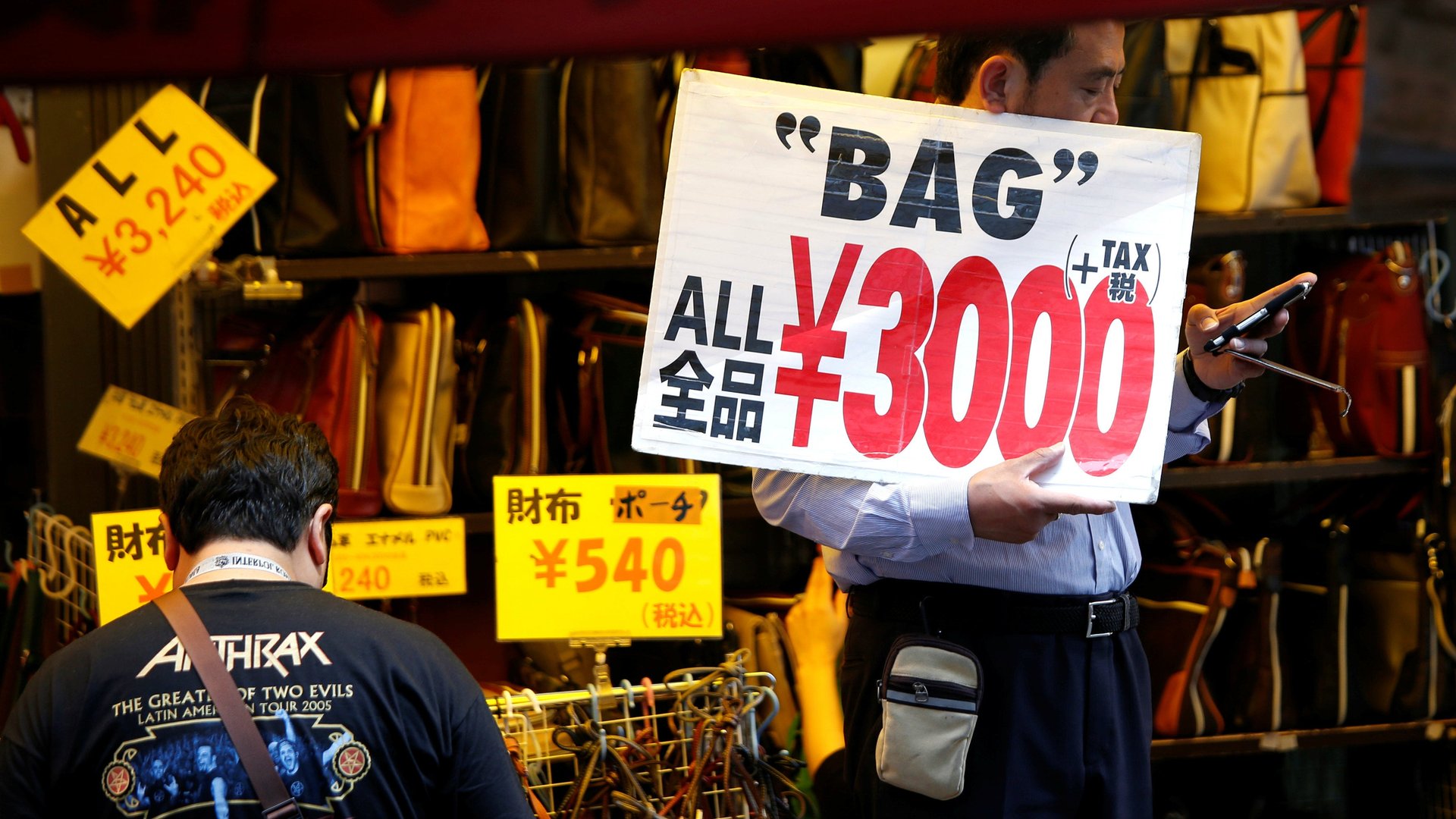Japan’s longest run of economic growth in nearly 30 years is over
These days, the good times for Japan’s economy never seem to last very long. After eight consecutive quarters of positive economic growth, the longest such stretch in 28 years, Japan’s economy is back to shrinking.


These days, the good times for Japan’s economy never seem to last very long. After eight consecutive quarters of positive economic growth, the longest such stretch in 28 years, Japan’s economy is back to shrinking.
Japanese GDP fell by 0.2% in the first quarter of 2018 compared to the previous quarter, or 0.6% at an annualized rate, thanks to low private consumption and housing demand.
The first quarter of 2018 was also bad for most European economies, which experienced a slowdown in growth. Like with Europe, analysts expect Japan’s economy to recover from a first-quarter blip. Several aspects of the economy look strong. For example, wage growth has improved, corporate profits jumped by 27% in the fiscal year ending in March, and the labor market has benefited from a dramatic rise in women joining the workforce.
Still, the downturn won’t be dismissed by Japanese policymakers. The central bank is in a battle to convince the public that inflation expectations should rise, and this data won’t help their cause. The negative GDP reading also creates a bad impression for prime minister Shinzo Abe, who is facing a decline in public support over a scandal related to the sale of state-owned land and faces a party leadership test later this year. Abe has tied his success and popularity to reviving Japan’s long-suffering economy.